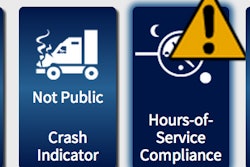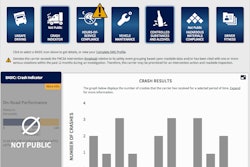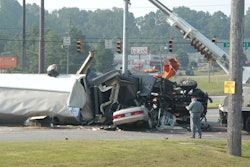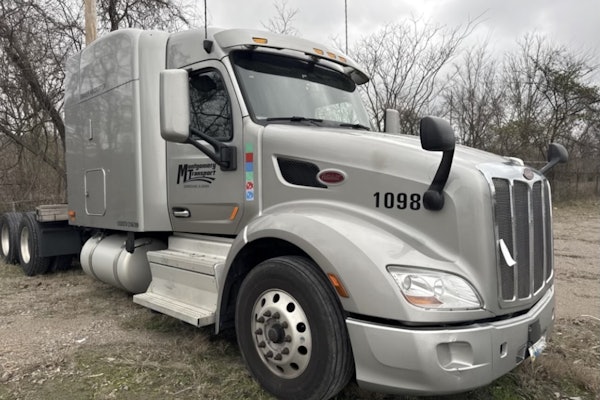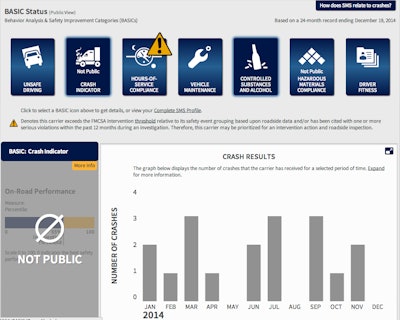 CSA’s Crash Indicator BASIC
CSA’s Crash Indicator BASICImplementing some form of crash accountability — that is, not dinging carriers for crashes they couldn’t prevent — in the federal Compliance, Safety, Accountability carrier ranking/scoring program could have a significant impact on carriers’ rankings within the system, concludes the American Transportation Research Institute in a report released Nov. 10.
And, ATRI’s report concludes, changing the rankings is not just an issue of fairness: The Crash Indicator BASIC can cause carriers to lose business, drive insurance costs higher, tangle carriers in litigation and tie up trucks and drivers with more frequent inspections.
In a review of 15 carriers’ CSA ratings in the Crash Indicator BASIC, all but one carrier had their rankings fall and half saw them fall by more than 5 percent when ATRI weeded out so-deemed “non-preventable crashes.”
Three carriers saw their Crash Indicator ranking change more than 10 percent, and two others’ changed by 9 percent and 7.1 percent, respectively. The biggest change for any single carrier was a 14-percent drop. The carrier whose score didn’t fall was unchanged.
ATRI’s report runs counter to a January-released study from the Federal Motor Carrier Safety Administration, who concluded then the CSA program as a whole wouldn’t change much if some form of crash accountability were implemented. FMCSA also concluded implementation of such a system would be costly and yield little benefit to carriers.
But the studies were much different, as were the intentions of the researchers for each.
Whereas FMCSA’s study concentrated more on a cost-benefit analysis of implementing a crash weighting system, ATRI’s report focused on removing from the 14 carriers’ scores points associated with crashes in which fault could not be attributed to the carrier.
It then recalculated carriers’ Crash Indicator BASIC percentile rankings to produce a new ranking, revealing that 14 out of the 15 carriers studied would benefit from such a change to CSA.
The changes, too, are conservative estimates, ATRI says, as it only removed five of the most common types of non-preventable crashes and not all crashes categorized as non-preventable, it says.
Lack of crash accountability or crash weighting in CSA has long-plagued the program, at least from a carrier and owner-operator perspective. Carriers’ BASIC rankings, as ATRI’s report intends to point out, can be negatively affected by crashes that are not the fault of the carrier or driver, including the five types of crashes ATRI removed from carriers’ rankings: (1) Truck collided with animal in roadway, (2) Other driver hits legally parked truck, (3) Other driver ran red light or stop sign and hit truck, (4) Other driver was under the influence of drugs or alcohol and hit truck, (5) Truck-assisted suicide by pedestrian.
The 15 carriers studied by ATRI were all large carriers, the smallest having between 500 and 1,000 power units and the biggest having more than 5,000. Nine of the carriers were truckload fleets and three were LTL carriers. The other three are listed as flatbed, tanker and other. The 15 carriers submitted 241 crashes deemed non-preventable.
ATRI says it plans to follow the report with a second study, in which it says it will “attempt to develop a cost-benefit analysis” of removing non-preventable crashes from carriers’ CSA records.


